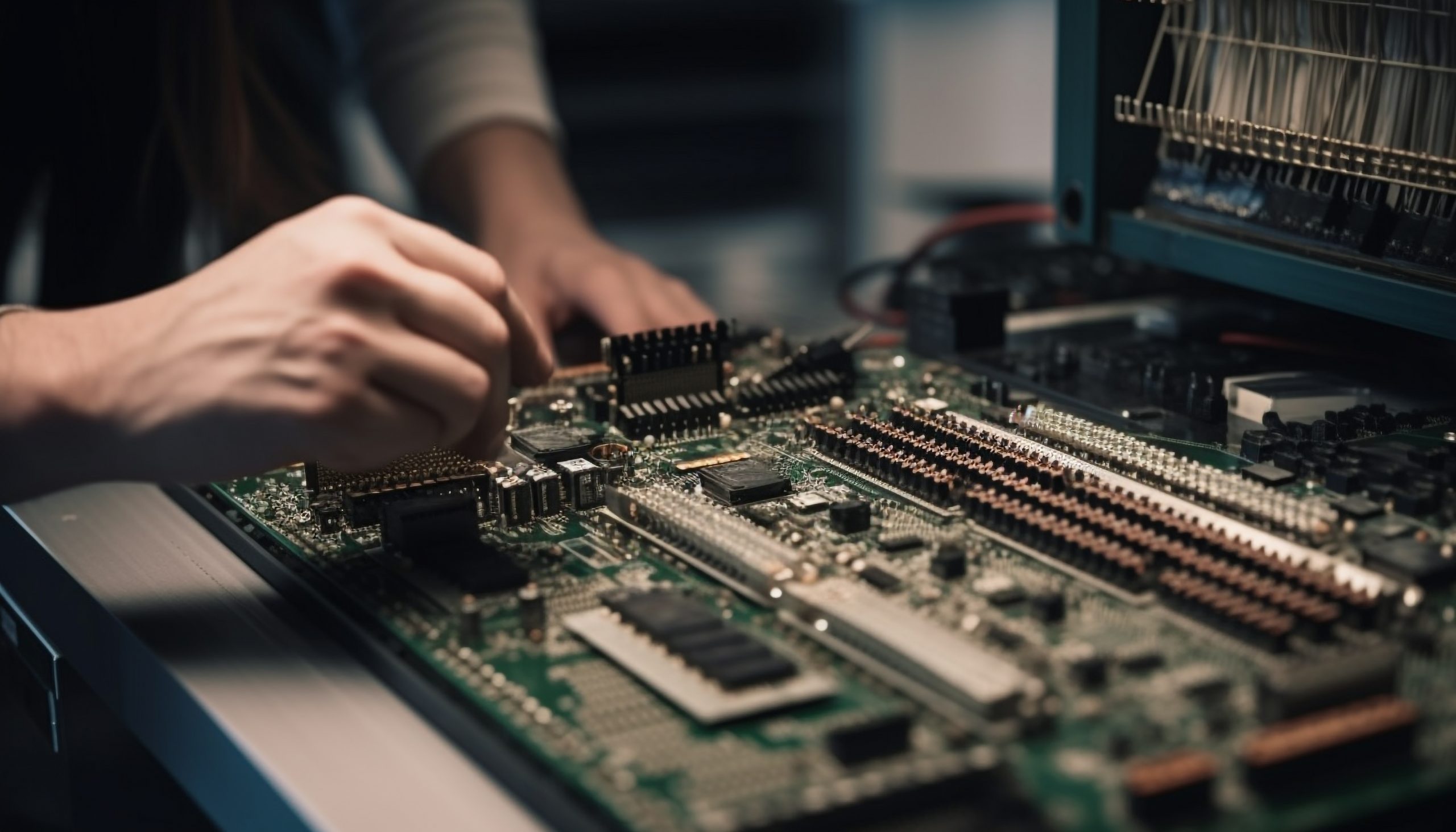

With the rise in digitization, a laptop is no more a luxury. It has become an essential product. However, the range of brands, their offerings, different specifications, and a lot more is enough to make you crazy if you are not familiar with their uses. No matter whether you are planning to buy a laptop for the first time or do not know about laptops and their specifications at all. These tips for buying a laptop will be a helpful resource to you.
First of all, you will have to make up your mind whether you want to buy a MacBook or other brands’ laptop. Moreover, it is better to have clarity of your budget before you step into the market.
If you plan to visit the store, the store associate will first ask about your desired specifications in terms of CPU, GPU, and RAM. If you are unfamiliar with these terms, you will not be able to choose the best laptop for yourself. Therefore, let’s discuss the significance of these terms in the process of laptop selection.
It is considered the brain of the laptop, and it is critical to have a correct selection as per your needs. The two leading CPU manufacturers are AMD & Intel.
Intel gives fast processing speed with its latest ‘Core family’. There is a simple formula applied here, the newer is the faster. That means, the Core i7 must process faster than i5.
AMD is a competitive budget-friendly brand. Its popular Ryzen series is as Intel processor only. This means Ryzen 5 is equivalent to Core i5.
Another processing unit, Apple M1 is new to the market and is present in new MacBooks only. It’s 3.5 times faster than the earlier one.
More CPU cores mean a faster system. It ranges from 2 cores to 8 cores.
2 cores or Dual-core CPUs are enough for basic tasks like surfing the web, writing documents, etc.
4 cores or Quad-core CPUs is sufficient for multitasking and entry-level gaming requirements.
6 cores or Hexa-core CPUs are best for professional gamers, content creators or graphic designers.
8 cores or Octa-core CPUs are suitable for hard-core professionals such as gamers, engineers or designers. It can edit 4k videos faster than other core CPUs.
The three major market-leading operating systems are Windows, macOS, and ChromeOS.
Windows supports the majority of apps & features and is a standard choice for gamers and businesses. MacOS is suitable for designers and people with less tech knowledge. Whereas ChromeOS is quite new to the market yet best for students and employees looking for budget-friendly fast and secure laptops.
If you prefer Windows, ensure to buy a laptop that supports Windows 11, because Microsoft will end its support for Windows 10 in 2025.
Similar to CPU yet it processes images, videos and games only. Mainly two kinds of GPUs are there, integrated GPUs (for basic tasks and low-resolution games) and discrete GPUs (for professional usage).
Further, two discrete GPU manufacturing companies are AMD and Nvidia. For faster processing, you must opt for Nvidia RTX 20 or GTX 10 series. AMD Radeon line of Vega GPUs are relatively cheaper yet justify their price.
If you are a high-end professional gamer or a creator, the Nvidia RTX30 series or AMD’s Radeon RX line could be the best pick.
Hard drives are available in two types, hard disk drive (HDD) and solid-state drive (SDD).
HDD stores data on magnetic spinning disks. The performance is quite dependent on how fast it is. For basic tasks, 5400 RPM (revolutions per minute) is fine. Ideally, you should opt for 7200 RPM for daily usage, and 10000 RPM is for high-end professionals. Some laptops facilitate HDD extension, which helps extend HDD when usage increases.
SDD is an alternate hard disk option that uses flash memory which allows loading applications, files and folders. The storage limit ranges from 120GB to 30.72TB but in an ideal laptop, one should have at least a 500GB SSD card.
First of all, it is not about screen size. It’s about the display of the content. In simple words, how many pixels your screen has. Higher resolution means clearer and sharper content display.
Nowadays, laptops come with either HD (1280 x 760), Full HD (1920 x 1080), Quad-HD (2560 X 1440) or 4k Ultra-HD 3840 X 2160). Now, you have to decide which resolution you need as per your requirements and budget.
Twisted Nematic (TN), In-Plane Switching (IPS) and OLED displays are the options you get to choose from.
TN panels are best-suited for gamers due to their fastest response. Whereas, IPS offers better color visuality that looks perfect from each angle. On the other hand, OLED is famous for TVs and phone displays with self-lighting pixels to offer perfect contrast and vibrant colors. Also, it has a faster response, thus ideal for gamers.
In layman’s language, a CPU clock is a time that processor takes to complete a task. The higher the clock speed, the faster will be the application loading. CPU’s clock speed is measured in gigahertz.
For basic usage, you can pick a laptop with a 2-3GHz speed. If you need a laptop for professional purposes, 3.5-4GHz is a must for smooth processing.
If you made it here, you must be having laptop specifications in mind according to your needs. You are all set to step into the market to search for available options from the range of brands. Now is the time you compare brands, prices and reviews.
All mentioned factors need critical consideration to not feel regretful for your pick. Remember, a laptop is a one-time investment. Make sure you do not rush and choose wisely with the help of our laptop purchasing guide.

I’m a Nerd and very proud of it! I love to write about anything Tech related. Subscribe to our blog for helpful tips, tricks & news.




